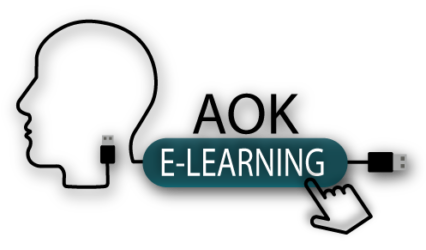John B. Kirk, Director
AOK Basic Skills Project (a retirement project, not an organization)
Portland, Maine
E: kirkjohnb5@gmail.com
W: www.aokbasicskills.gratis
2021-11-20
Overview “The Whole Food Workshops”
The AOK Philosophy on Nutrition and Supporting Articles
The AOK website recipes can help people of low economic means can have a healthy, relatively inexpensive diet. AOK is a proponent of teaching this group how to prepare whole plant foods and eat less meat, poultry and fish products.
As plant foods are generally less expensive and more available than meat products, this also can help with food insecurity, which is presently being exacerbated by the Pandemic, the war in the Ukraine, the high rate of global inflation and the world food shortage.
Beans, grains and vegetables can provide ample protein for a healthy diet, and with earth’s growing population, it’s better off for the planet, as well. Please see the following statements and quotations that have been made by responsible institutions.
Supporting Whole Food Articles
What are some examples of whole foods? “Whole foods are generally characterized as foods that have not been processed, refined or had ingredients added to them. Whole foods include fruits, vegetables, legumes, nuts, seeds, whole grains, meat, fish and eggs.” https://blog.mission-health.org/2018/07/26/whole-processed-foods-health/
Eating mostly plant foods is healthier and less expensive. “Meatless meals are built around beans, lentils, vegetables and whole grains. These plant-based proteins tend to be less expensive and offer more health benefits than meat.” (https://www.mayoclinic.org/healthy-lifestyle/nutrition-and-healthy-eating/in-depth/meatless-meals/art-20048193)
People of low economic means suffer greatly for lack of healthy diets. “Hunger, malnutrition, lack of micronutrients, overweight and obesity have greater impact on people with lower income, women, indigenous people, Afro-descendants and rural families in Latin America and the Caribbean, according to a new UN report.” http://www.fao.org/americas/noticias/ver/en/c/1161235/
Plant based diets can help the world’s poor. “The researchers concluded that eating more plants would help: … 2. Alleviate hunger. The report found that more than 820 million people around the world lack sufficient food. It also noted that “almost two thirds of all soybeans, maize, barley, and about a third of all grains are used as feed for animals.” https://www.pcrm.org/news/blog/how-eating-more-plants-can-save-lives-and-planet
A good example of the dietary results of an underdeveloped country with mostly plant diets is Cuba. “Beans and rice serve as vital staples in the Cuban diet, providing inexpensive side or even main dishes in many meals.” https://traveltips.usatoday.com/
What is the state of child health and literacy in Cuba? “Cuba has excellent child health as illustrated by its low child mortality rates… Literacy is at 99.7% and this enables public health campaigns to reach the entire population.” https://www.ncbi.nlm.nih.gov/pmc/articles/PMC6830455/
Food from plants is less expensive and uses less space and resources. “Growing vegetable products is more economical in comparison to meat and poultry products in terms of the cost, protein production, space needed, resources used, and the amount of the final product.” (https://faunalytics.org/farming-animals-vs-farming-plants-comparison/)
Plant based diets require much less space to produce. “The researchers concluded that eating more plants would help: …5. Another 2017 study projected that if Americans ate more beans and less beef, we would require 42 percent less cropland.” https://www.pcrm.org/news/blog/how-eating-more-plants-can-save-lives-and-planet
Summary of Whole Food Workshops
On it’s Whole Food Website section, AOK lists several workshops of 90-120 minutes through Zoom or in person. It also lists food preparation information and recipes for a healthy, simple and inexpensive diet. As well, it includes some practical bread recipes, general directions on how to make “Sierra Burgers”, and recipes for making granola and no-bake cookies. The workshops are as follows:
- A breadmaking workshop: “Steamed and Flat Bread and Pancakes” (no oven is needed for steamed bread).
- A breadmaking workshop:“Home-baked Bread for Busy People” that uses an oven and teaches how to use the freezer to store dough to have a steady supply of tasty breads on a daily basis.
- A pressure cooking workshop: “Using the Pressure Cooker” with instructions about how to use the pressure cooker for – making steamed beans, cooking grains with the Bain Marie method, and cooking an assortment of vegetables.
- A workshop for people with food insecurity problems:Whole Foods for Busy People: How to Save Time & Money with “One-Dish Meals”, Easy Recipes, and Cooking Ahead. This workshop explains how people from any culture can prepare “One-dish Meals“, a system approved by the American Dietetic Association. It also provides an overview about making a budget, purchasing food, preparing it, and storing, freezing and dethawing it.
Information about “Steamed Bread”
The steamed bread and pancakes listed above for Workshop “A” hold the distinction of being certified by the Ministry of Health of Ecuador and are included in the recipes for the pre-school children’s centers in Pichincha Province. They were determined to have significant protein and a good taste in a government hospital kitchen in Quito.
Steamed bread is also quite sanitary, as it doesn’t touch the counter when it’s being made and its internal temperature is 83C when cooked; 71C is hot enough to eliminate most bacteria. Also, as it’s a soft bread, it’s practical for small children and the elderly to eat, especially for sandwiches. It only takes about 70 minutes to make from scratch.
Some Advantages of a “Whole Food Diet”
In its workshops AOK tries to encourage people to eat much less meat, poultry and fish products; it promotes eating more whole plant food and shows how to do it. As discussed above, whole plant food can provide a healthy, relatively inexpensive diet.
For a family of poor economic means, the health and savings gained from eating basically plant food and preparing it themselves could be significant. As well, in many cases eating more beans, grains and vegetables could significantly help the problem of stunted growth in small children.
The savings from buying less meat products and junk food could be from 25-40% monthly, depending on the family. For example, homemade bread, granola, non-bake cookies and cold tea mixed with fruit juice could help substitute for store bought items and aren’t difficult to make. Furthermore, the use of an oven isn’t necessary. Further savings could be had if families join together to make a food coop.
The Pressure Cooker and Basic Cookware
The pressure has been known as a time saving cooking instrument for years. However, in terms world hunger, it hasn’t fully been taken advantage of yet: it cooks in half the time of normal boiling, uses half the energy, and preserves nutrients better than boiling does.
A good example of the dietary results of an underdeveloped country using the pressure cooker with mostly vegetarian diets is Cuba (mentioned above). It has low child mortality and illiteracy rates. Soaking beans overnight cuts cooking time significantly, and cooking them in a pressure cooker afterwards cuts the time by another 50%.
Basic cookware suffices for simple, tasty recipes for main meal and dessert/snack foods. A four-burner stove and some pots and pans with a pressure cooker is all that’s needed. A refrigerator can certainly help, but isn’t a requirement.
Letter: UN – A User Friendly “Zero Hunger Website”
If interested, please read the AOK letter to the UN – Letter: UN – A User Friendly “Zero Hunger Website”. It’s on this AOK website in this same section: Whole Food Workshops. It discusses ways to both help the underprivileged to have better diets and to participate in the effort to alleviate the world food shortage. Please see the following quotation from the letter:
“With children learning how to use the Internet in schools, a “Zero Hunger Website” that’s focused on economical nutrition, conservation practices for the world food shortage, and international participant communication will gradually come into its own.”
Conclusion
AOK workshops are free and without obligation: today on the Internet there are many free EFL learning sites for teachers and students that are only available for non-commercial, individual use. As AOK uses this information in its workshops, its services are also free and without obligation. Contact AOK Life Skill Workshops for more information.
AOK hopes that this section of its website has presented some ideas that can help families of low economic means have healthy, affordable diets. It has also tried to make these families stake holders in helping to solve the world food problem through the UN Global Goal 2, which “aims to end hunger and all forms of malnutrition by 2030”. Please contact us by e-mail if you might have any contributions you would like to make.
Sincerely,
John B. Kirk, Director
kirkjohnb5@gmail.com
About the writer:
John Kirk is a semi-retired ESOL teacher over 65 who lived in Ecuador for over 10 years before recently relocating to Portland, Maine in the U.S. He is the director of AOK, a charitable educational effort and personal retirement project that was connected to his English school in Quito, Ecuador. AOK is not an organization. It specializes in teaching basic skills in ESOL, native Spanish education classes, and nutrition.
During the past three years, John has written 20 AOK Basic Skills Workshops and before the Pandemic presented many of them throughout the Ecuadorian Sierra. The theme of the presentations is “How you can use the Internet to improve your knowledge of important life and educational skills without cost”. John holds the following degrees: M.S. Ed in Reading Education K-12, a MATESL, and an A.A.S. as a Dietetic Technician.

